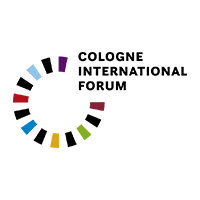Subproject 3: Remittance Channels in the Context of Violent Conflicts: The Example of Burmese Refugees in Thailand
In Conversation with Dr. Anna Sobiech
Remittance flows – money transfers from migrants to relatives and friends in their country of origin – have attracted significant interest among scholars and policy circles. As a private monetary resource, remittances help address poverty issues and play a key social and developmental role (Kapur 2003). It is this dual role that makes remittances particularly suitable to addressing societal challenges arising in conflict-ridden, unstable environments. While remittances have been shown to be resilient in the face of conflict and instability (Bettin and Zazzaro 2018; De et la. 2019), little is known about how conflicts shape migrants’ choice of remittance channels (Vargas-Silva 2016).
Remittance channels range from the traditional, such as wire transfers through bank and non-bank intermediaries and in-cash transfers via informal operators (e.g., hundi schemes), to new forms of digital money transfers provided by decentralized finance operators or mobile money systems. Remittance channels differ along several dimensions which have been shown to determine migrants’ choices, including legality, risks, costs, and service-related features such as ease of access or speed of delivery (Metzger et al. 2019).
The purpose of this research project is to discern the extent to which different types of channels and their features change during episodes of conflict and how this is reflected in migrants’ choices of channels. We focus on the Thailand-Myanmar (T-M) remittance corridor considering the recent conflict that arose from the military coup in Myanmar in February 2021. In the T-M corridor, remittances flow in two directions: from migrant workers in Thailand to families in Myanmar and from families in Myanmar to refugees in Thailand. A large portion of remittances are sent via informal channels that are insecure, prone to misuse for illegal purposes, and less beneficial for economic development, but have been shown to be relatively resilient in the face of political instability (Turnell et al. 2008; Sandar 2011; Chantavanich and Vungsiriphisal 2012; Kubo 2017; Watanasombut 2022).
The results of the study will provide invaluable insights to the literature on migrants’ choice of remittance channels. Given the important role that remittances play in economic development, the findings from this study have the potential to contribute to the design and execution of policies promoting a more inclusive and resilient remittance corridor in Thailand. Our results will also provide the foundation for further research, development, and collaboration with researchers from Chulalongkorn University and Bamenda University.
